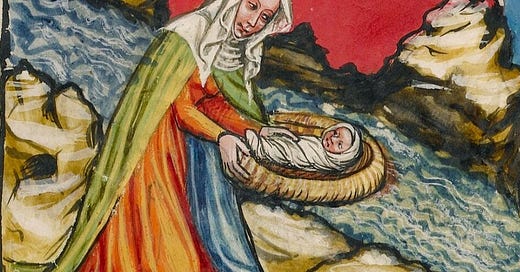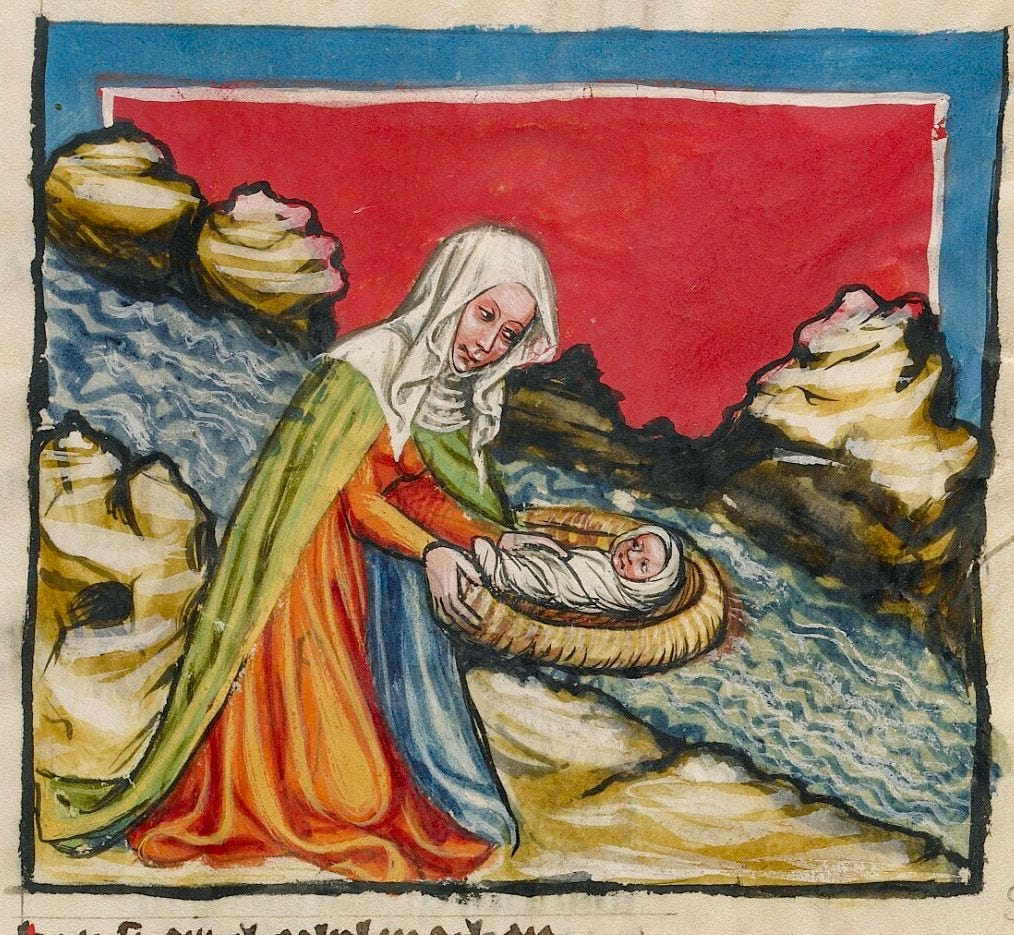After a three-week hiatus occasioned by a series of reflections on pain in medieval life and liturgy, and then by an artistic celebration of St. Andrew’s Day, we can return to our series on angels in medieval culture. The series began with an essay on the Middle Ages as the Age of Angels: the incomparable Mont-Saint-Michel and a wonderfully medieval illumination of St. Michael gave us insights into a world where people “not only believed in angels, not only celebrated their feasts and invoked their aid, not only saw them in books and paintings and stained-glass windows, but felt their presence with a ubiquity and intensity and deep affectivity that are virtually unknown and almost unimaginable in the modern world.” After that, we discussed the mysterious faeries (not fairies) of medieval literature, which seem “rather like angels who were cast down from heaven but got tangled in the web of human folklore and didn’t make it to their infernal destination.” I emphasized the literary nature of medieval Christians’ extraordinary angelology, which “was rooted in and nourished by their inherently poetic life, their love for mystical and mythological stories, and—above all—their profoundly literary encounter with the Bible.”
That encounter gives us our topic for today’s post. The medieval world’s awareness of and interest in angelic realities is simply fascinating, and it’s unlike anything I’ve seen in modern Christianity. Why is this the case? How did medieval angelology develop into such a rich and pervasive aspect of daily, scholarly, and spiritual life? We find part of the answer in the medieval relationship with Holy Scripture.
Keep reading with a 7-day free trial
Subscribe to Via Mediaevalis to keep reading this post and get 7 days of free access to the full post archives.





